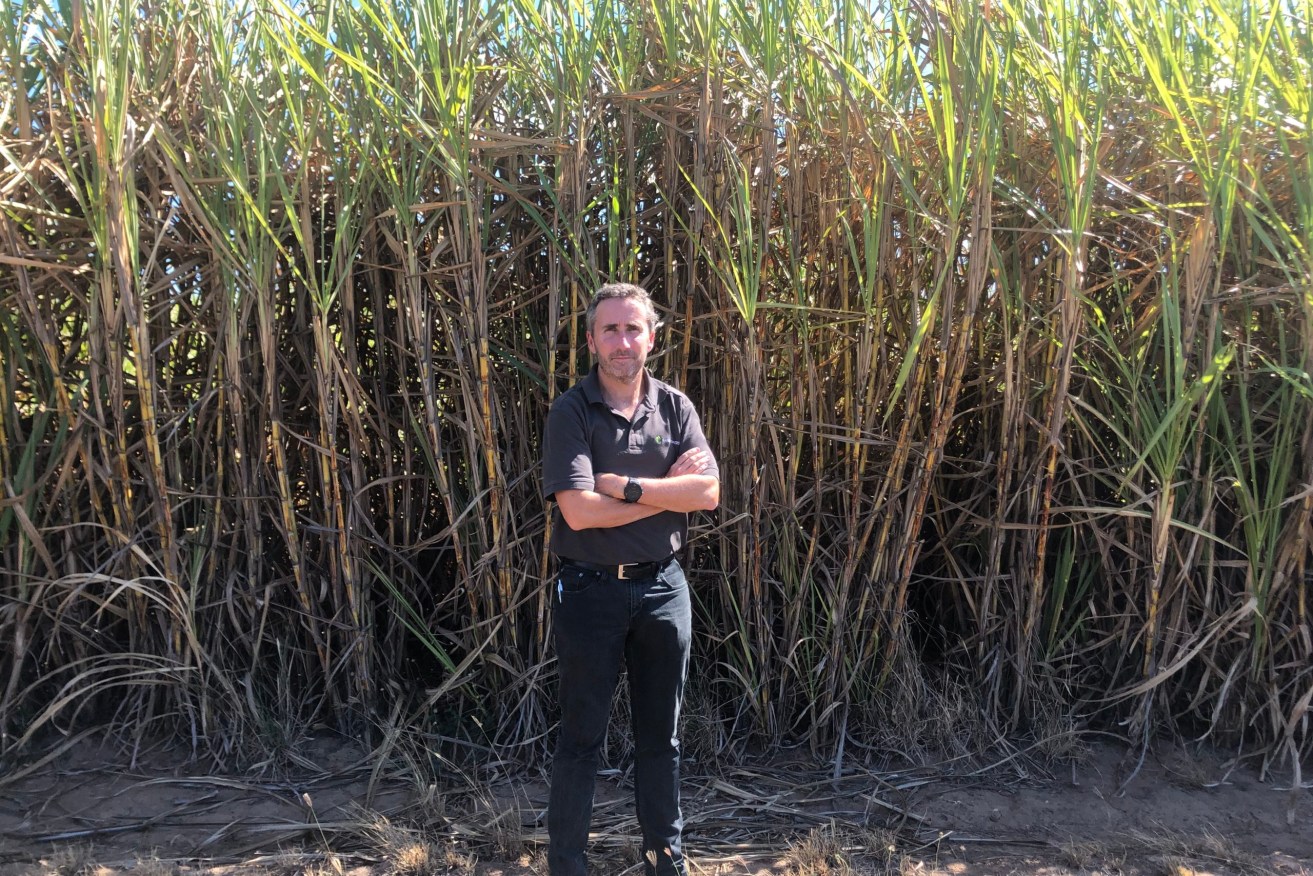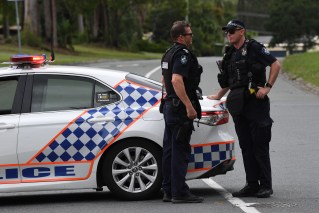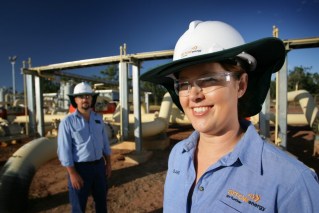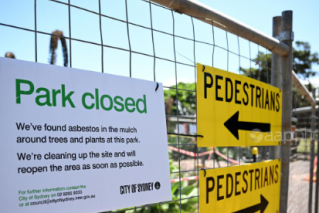Caned: Sugar growers say new rules will crush plans for bio-fuel
The Palaszczuk Government’s latest move to introduce more regulation to farming near the Great Barrier Reef may inadvertently drive sugar producers out of business.


Canegrowers CEO Dan Galligan says continuing government interference in farming will cause the industry to decline. (Photo: Supplied).
Canegrowers chief executive Dan Galligan said it appeared the State Government was working at cross purposes when it decided to impose more environmental compliance measures on farmers, while identifying sugar cane as a key raw material for industrial biotechnology projects aimed at superseding fossil fuels.
“The real irony of this is that the government has issued a clear commitment to encourage the cane industry to develop and diversify in the interests of creating 400,000 hectares of stored energy to build a biofutures industry,” he said.
“Cane is the best converter of biomass energy in the world for plant-based fuels and no doubt there would be many sections of the government pushing for cane expansion.
“But then we have new laws like this one that require a permit for new cropping land over five hectares, when cane growers are already subjected to very strict environmental regulations.”
Galligan’s assessment comes as the government calls for submissions before February 17 on a proposal that would force growers to apply for new permits when expanding their production areas.
In a statement released last week, Canegrowers said the proposed new rules were unnecessary because they duplicated the regulations to which growers along the Reef belt – from the Burnett Mary region to Cape York – were already subjected.
A Department of Environment and Science spokesperson said Canegrowers was incorrect in its understanding of the proposed new regulations.
“They focus on designing and setting the farm up prior to cropping in order to minimise the loss of soil and nutrients from the new activity,” the spokesperson said.
“The minimum standards then guide the ongoing operation of sugarcane growing with the aim of supporting profitable and productive farming while improving water quality.
“The requirements only apply to new cropping over five hectares – existing sugarcane growing will not require a permit.”
But Galligan and his membership remain unconvinced and are calling for exemptions, which the government promptly rejected.
“Any new sugarcane planting would be subject to existing reef regulations so there’s no need to slap another layer of regulation, in the form of a new approval process, in the way of growers,” Galligan said.
Green tape’s long history
The new measures are the latest in a list of incremental variations to farm practice stretching back more than a decade.
State Government regulations introduced over ten years for growing sugarcane demand compliance related to land use, such as the agronomic and structural measures farmers take to minimise erosion and run-off.
There are also strict rules governing fallow management (the periods of time when there are no crops planted) and record keeping.
The most controversial measures relate to fertiliser use, particularly the methods employed to spread nitrogen and phosphorus and their application rates.
Canegrowers released a report last year indicating the industry stood to lose $1.3 billion over ten years if growers were forced to apply government-mandated rates 30 per cent below those recommended as industry best practice.
Canegrowers chairman and Mackay cane grower Paul Schembri slammed the State Government’s approach as a “zealous campaign” without empathy for the damage caused to farmers, business and regional economies.
“This is happening without any direct evidence that dissolved nitrogen from farms is having any effect on corals in inshore areas which see catchment flows,” he said at the time.
A Federal Senate inquiry was held last year to probe the science behind government Great Barrier Reef protection measures, with the final outcome proving inconclusive.
Ahead of that inquiry, Schembri argued the importance of nitrogen in water for coral on the Reef had been greatly exaggerated by governments.
“Scientists tell us that the main stressors on the Reef are climate change and extreme weather events – this is where governments need to be focussing their attention,” he said.
“Our industry is being sacrificed for political expediency, to make it look like action is being taken to improve the prospects for the Reef’s future.”
Much pain for no gain
Galligan is certain the current Palaszczuk administration remains on the same policy trajectory.
Despite leading an organisation that would be considered a major stakeholder in the policy area of Great Barrier Reef protection, Canegrowers is still to have a one-on-one meeting with the new Environment Minister Meaghan Scanlon after she was sworn in after the October 2020 election.
Galligan remains hopeful of a meeting before the end of the month and says there is much to discuss and little time to waste.
With the latest measures due to take effect in June, Galligan is certain growers will be under more time and cost pressure, jeopardising growth in the industry and potentially skewering the State Government’s plans to drive a large part of its biofutures industry off the Queensland cane crop.
As arrangements currently stand, growers have no financial incentive to produce more cane beyond its value as a food crop.
In addition to sugar, Queensland’s cane crop is currently processed to produce molasses and bagasse, the fibre component of sugarcane that generates electricity at sugar mills.
However, unlike sugar, growers derive no financial benefit from molasses and bagasse.
As they are considered by-products of milling, molasses and bagasse revenues go direct to the sugar mills.
Singaporean-owned Wilmar Sugar, for example, currently processes ethanol from cane at its facility near Sarina, the largest of its type in Australia.
For growers persisting with cane production in spite of the regulatory burden, they are hopeful of bigger revenue opportunities to come from biofuels, biochemicals and plastics derived from their crop, Galligan says.
A State Government report in 2017 identified the Wilmar bioethanol plant as having the capacity to produce 60 million litres of molasses derived ethanol annually, making it key to a revived biofuels industry throughout the state.
Galligan is adamant that such projections will be hard to reach if cane growers continue to miss the financial dividends and are regulated out of business in the pursuit of environmental outcomes that are ill-defined and unproven.
Australia Sugar Milling Council data, for example, shows the industry lost 250 growers between 2013 and 2019 and dropped more than 6500 harvested hectares in the same period.
The sharpest declines have been in the state’s southern regions around Maryborough and Bundaberg, where competition for land has been fierce for housing developments and high-value crops like macadamias.
“The sugar industry is stable and strong in its own right, but the production of cane and the products you can derive from it has enormous potential for agriculture, regional communities and the state’s economy,” Galligan said.
“But you’d have to say at the moment that we’re operating in an environment that’s not encouraging development and allowing farmers to grab hold of opportunities.
“Our farmers love the Reef, they don’t see it as a problem, they see it as an asset, so many of our farmers continue to adapt to the new compliance measures to stay in business.
“But if I was a younger farmer, looking to increase my business over the longer term, I’d have to ask if the additional paperwork was worth the effort.”












